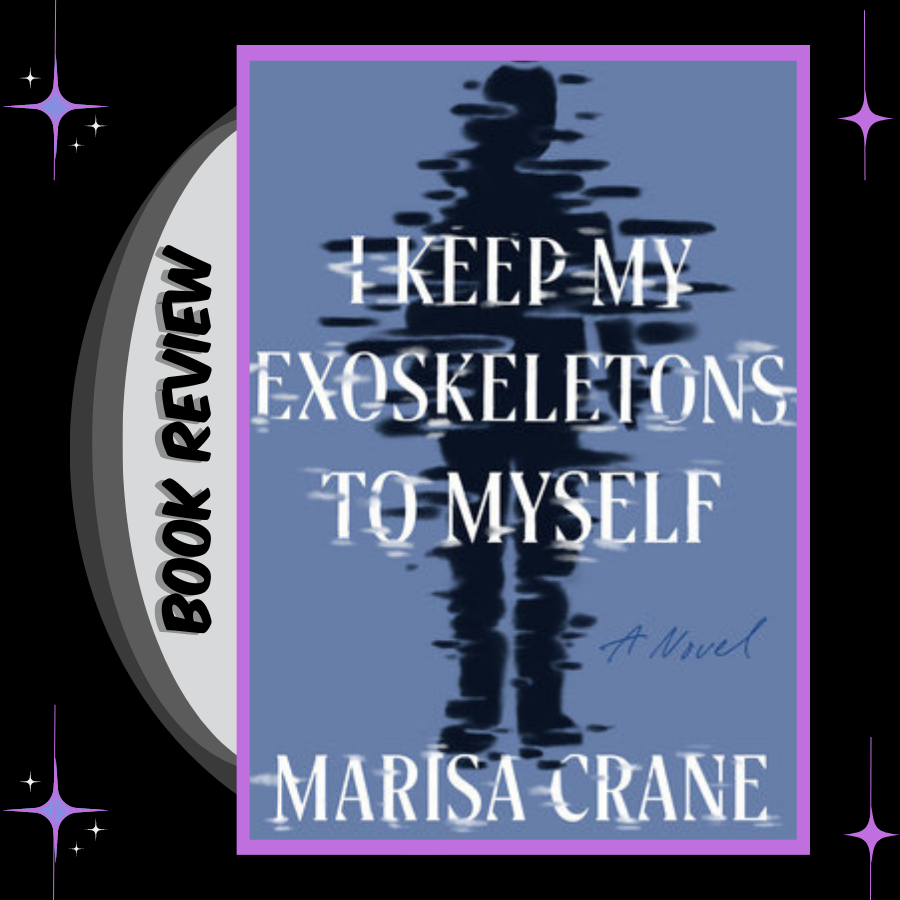Marisa Crane’s I Keep My Exoskeletons to Myself is a stunning book. It is staggering how many things it manages to be at once. It’s poetic and experimental, dystopian and tender, kinky and queer. It is about grief and loss but also about love and hope, community in the face of adversity and, perhaps above all, the love between a mother and her daughter.
Set in an America that is just a few steps away from our own, the government has abolished prisons. Unfortunately, they have replaced them with an insidious system that brands criminals with a shadow that follows them wherever they go. Shadesters, who have been marked by these shadows, wear their shame visibly and without context, inspiring distrust and hatred from others. In addition to their outsider status, they are also subject to constant surveillance and are treated as second class citizens. One such shadester, Kris, has just brought her newborn daughter home from the hospital. Her daughter, who is mostly referred to as “the kid,” has a shadow of her own–given to her as a result of her other mother, Beau’s, death in childbirth.
What follows is a messy and beautiful story about Kris, navigating the depths of grief and her strong love of Beau, grappling with new motherhood and the society that has labeled her and the daughter she is struggling to understand as outcasts.
In its sort of eerie believability, this world reminded of The Women Could Fly or Station Eleven. And in its beautiful, rhythmic and fragmented prose, it reminded me Bluets by Maggie Nelson or the Department of Speculation by Jenny Offill.
While this subject matter is difficult and heavy at times, I Keep My Exoskeletons to Myself is a joy to read. Crane is a poet in addition to a novelist, and their prosody shines through every page. And, in response to every darkness, there felt like there was some light. In spite of the injustices of the society she is living in, Kris finds a community of shadesters–a group of misfits that become like family. In spite of her grief, Kris is surrounded by the memories of the great love she had for Beau. And the kid is a beacon–in Kris’s life, and as a spark in a world that’s shrouded by shadow.
I Keep My Exoskeletons to Myself would work on its own without the speculative dimension as a beautiful meditative reflection on various kinds of love and loss. And it it would work equally as well as an exploration of a surveillance society interested in creatively punishing its citizens, and the pockets of resistance such a society might inspire. Luckily for us, Crane has somehow written both.


